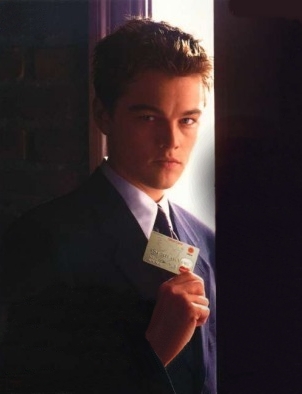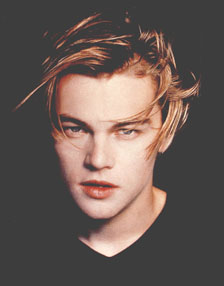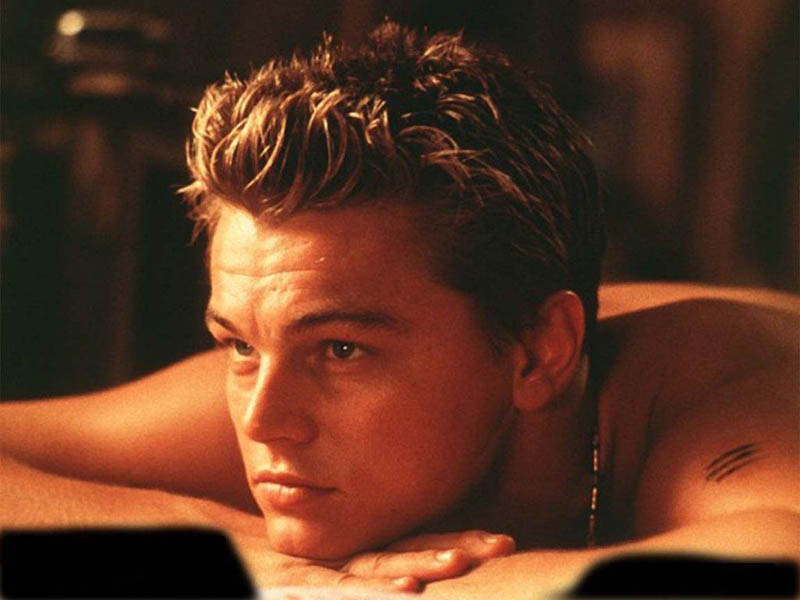Leonardo Dicaprio Biography
(born Nov. 11, 1974, Los Angeles, Calif., U.S.) American actor and producer, who emerged in the 1990s as one of Hollywood's leading performers, noted for his portrayals of unconventional and complex characters.
DiCaprio first acted at age five, performing on the children's television show Romper Room, and, as a teenager, he made numerous commercials and educational films. In 1990 he began appearing on a series of television shows, including The New Lassie and Roseanne, and in 1991 he was cast in a recurring role on Growing Pains. That year DiCaprio also made his big-screen debut in Critters 3, a low-budget horror film.
DiCaprio's breakthrough came in 1992 when he beat out 400 other hopefuls to act opposite Robert De Niro in This Boy's Life (1993). DiCaprio earned rave reviews, and for his next film, What's Eating Gilbert Grape (1993), he received an Academy Award nomination for best supporting actor for his realistic portrayal of a mentally disabled teenager. Several independent movies followed, including The Basketball Diaries (1995) and Total Eclipse (1995), which focused on poet Arthur Rimbaud's homosexual relationship with Paul Verlaine.
In the mid-1990s DiCaprio began to attract a wider audience with more mainstream films. He became a teen heartthrob after starring in Baz Luhrmann's screen-adaptation of William Shakespeare's Romeo and Juliet (1996), a modern retelling of the classic love story. In 1997 DiCaprio was launched into international stardom with the release of James Cameron's epic Titanic. His good looks and poignant portrayal of Jack Dawson, a penniless artist who falls in love with an upper-class passenger (played by Kate Winslet), helped make Titanic the highest-grossing film ever.
Though flooded with offers to appear in blockbusters and other mainstream fare, DiCaprio instead embraced roles that featured the complex characters that had come to define his career. In 2000 he starred in The Beach, a dark film about a young backpacker's search for paradise. Two years later he appeared in Martin Scorsese's Gangs of New York, a period piece about gangsters in New York City in the mid-1800s. That year he also starred opposite Tom Hanks as the real-life con artist Frank Abagnale, Jr., in Steven Spielberg's Catch Me If You Can. Reteaming with Scorsese, DiCaprio portrayed a young Howard Hughes in The Aviator (2004), for which he received a best actor Academy Award nomination.
DiCaprio's later works include a third collaboration with Scorsese, The Departed (2006), and Blood Diamond (2006). Both films garnered DiCaprio some of the best reviews of his career, and he earned an Oscar nomination for his portrayal of a diamond smuggler in the latter film. In 2008 he starred as a CIA agent hunting down a terrorist on the run in Ridley Scott's Body of Lies. DiCaprio again paired with Winslet in Revolutionary Road (2008), an adaptation of the novel by Richard Yates that depicts a young couple struggling to reconcile their unconventional aspirations with a stifling existence in 1950s suburbia. For his next film, Scorsese's Shutter Island (2010), DiCaprio portrayed a tormented U.S. marshal sent to a hospital for the criminally insane to investigate the disappearance of an inmate.
DiCaprio first acted at age five, performing on the children's television show Romper Room, and, as a teenager, he made numerous commercials and educational films. In 1990 he began appearing on a series of television shows, including The New Lassie and Roseanne, and in 1991 he was cast in a recurring role on Growing Pains. That year DiCaprio also made his big-screen debut in Critters 3, a low-budget horror film.
DiCaprio's breakthrough came in 1992 when he beat out 400 other hopefuls to act opposite Robert De Niro in This Boy's Life (1993). DiCaprio earned rave reviews, and for his next film, What's Eating Gilbert Grape (1993), he received an Academy Award nomination for best supporting actor for his realistic portrayal of a mentally disabled teenager. Several independent movies followed, including The Basketball Diaries (1995) and Total Eclipse (1995), which focused on poet Arthur Rimbaud's homosexual relationship with Paul Verlaine.
In the mid-1990s DiCaprio began to attract a wider audience with more mainstream films. He became a teen heartthrob after starring in Baz Luhrmann's screen-adaptation of William Shakespeare's Romeo and Juliet (1996), a modern retelling of the classic love story. In 1997 DiCaprio was launched into international stardom with the release of James Cameron's epic Titanic. His good looks and poignant portrayal of Jack Dawson, a penniless artist who falls in love with an upper-class passenger (played by Kate Winslet), helped make Titanic the highest-grossing film ever.
Though flooded with offers to appear in blockbusters and other mainstream fare, DiCaprio instead embraced roles that featured the complex characters that had come to define his career. In 2000 he starred in The Beach, a dark film about a young backpacker's search for paradise. Two years later he appeared in Martin Scorsese's Gangs of New York, a period piece about gangsters in New York City in the mid-1800s. That year he also starred opposite Tom Hanks as the real-life con artist Frank Abagnale, Jr., in Steven Spielberg's Catch Me If You Can. Reteaming with Scorsese, DiCaprio portrayed a young Howard Hughes in The Aviator (2004), for which he received a best actor Academy Award nomination.
DiCaprio's later works include a third collaboration with Scorsese, The Departed (2006), and Blood Diamond (2006). Both films garnered DiCaprio some of the best reviews of his career, and he earned an Oscar nomination for his portrayal of a diamond smuggler in the latter film. In 2008 he starred as a CIA agent hunting down a terrorist on the run in Ridley Scott's Body of Lies. DiCaprio again paired with Winslet in Revolutionary Road (2008), an adaptation of the novel by Richard Yates that depicts a young couple struggling to reconcile their unconventional aspirations with a stifling existence in 1950s suburbia. For his next film, Scorsese's Shutter Island (2010), DiCaprio portrayed a tormented U.S. marshal sent to a hospital for the criminally insane to investigate the disappearance of an inmate.
Leonardo Dicaprio
Leonardo Dicaprio
Leonardo Dicaprio
Leonardo Dicaprio
Leonardo Dicaprio
Leonardo Dicaprio
Leonardo Dicaprio
Leonardo Dicaprio
Leonardo Dicaprio
Leonardo Dicaprio
LEONARDO DICAPRIO MOVIES









